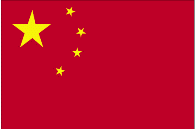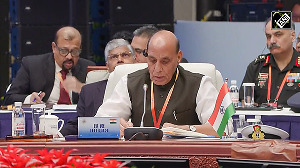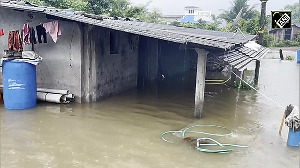 China on Thursday amended a law on guarding state secrets that makes it mandatory on Internet and telecommunications companies to inform on customers who discuss state secrets.
China on Thursday amended a law on guarding state secrets that makes it mandatory on Internet and telecommunications companies to inform on customers who discuss state secrets.
The amendments to the Law on Guarding State Secrets was approved by the lawmakers at the end of the four-day bimonthly session of the National People's Congress Standing Committee after three reviews, the first of which began last June.
The law will came into effect from October 1. "This is to protect the country," Zhang Yong, director of the Protection of State Secrets' policy and regulation department, said. State secrets have a clearer definition in the amended law.
They are defined as information concerning state security and interests and, if leaked, would damage state security and interests in the areas of politics, economy and national defense, among others.
Under the amended law, Internet and telecom companies have to block the transmission of leaks of state secrets, make a record of the activity and inform authorities, and if those authorities request they must delete the information.
The National Administration for the Protection of State Secrets and local bureaus above the county level are responsible for national and local classification, respectively, Xinhua news agency reported.
Prof Wang Xixin at Peking University Law School said the number of state secrets will decline as fewer levels of government departments have the power to classify information as a state secret. "It will also boost government transparency," he said.
Local officials often use the excuse "state secrets" to avoid answering inquiries from the public properly. The governments under the county level now will have to respond to public questioning with more openness and without the power to classify information as a state secret, Wang said.
According to the law, there will more complicated but standardised procedures to classify information a state secret which will eliminate "random classification." The amended law also grants more responsibility to classification departments and units, which will be penalised if they do not properly classify information.
Wang said reducing the number of state secrets will improve state secrets protection, as "the protection work would be difficult if there are many state secrets, and more manpower and resources would be used."
"The more state secrets, the more 'numb' the public will be," he said, adding that revision of the law also enhances China's image on the international stage, as the country should narrow the gamut of state secret as it conducts increased international exchange.






